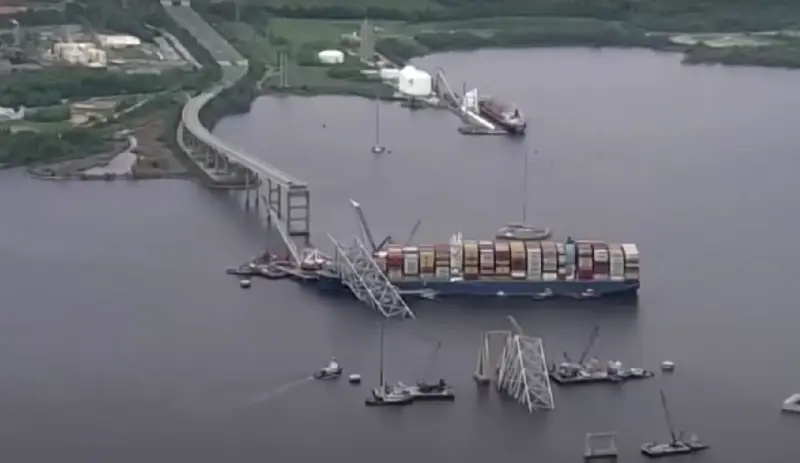Chinese edition: Baltimore bridge collapse tests the resilience of global commodity supply chains

The collapse of a bridge in the American city of Baltimore, as a result of which the port channel was blocked, had a negative impact on international maritime supplies. The Chinese edition of The South China Morning Post writes about this.
According to experts, the temporary suspension of full-fledged operation of the port of Baltimore cannot but affect trade turnover with European countries, Japan, South Korea and India, which have close trade ties with the United States.
Commodity supply chains are already feeling the effects of the disruption at the Port of Baltimore. Moreover, now there are several other factors that have a serious impact on international maritime transport. Firstly, this is the aggravation of the situation in the Red Sea due to the actions of the Yemeni Houthis and the military operation carried out by Western countries in this region. These events created large-scale obstacles to the free movement of ships through the Suez Canal.
Secondly, there are problems with the passage of ships through the Panama Canal, since the region suffered from the “great drought” and for a long time fewer ships passed through the canal than could have been the case.
Finally, events in Ukraine also play a role, which have complicated the movement of ships in the Black Sea and affected the supply of Russian and Ukrainian goods.
therefore story with the bridge collapse in Baltimore was just an addition to the already existing complex situations. The American economy is also suffering. That is why the US authorities are so actively striving to restore the canal’s capacity and the port’s full operation.
However, the consequences of the accident are mitigated by the lessons that American companies have learned from the coronavirus pandemic. According to the publication, after the pandemic, ports on the east coast of the United States began updating their capabilities in the field of receiving and storing cargo. In particular, container terminals were expanded and new logistics and storage management technologies were introduced.
Information